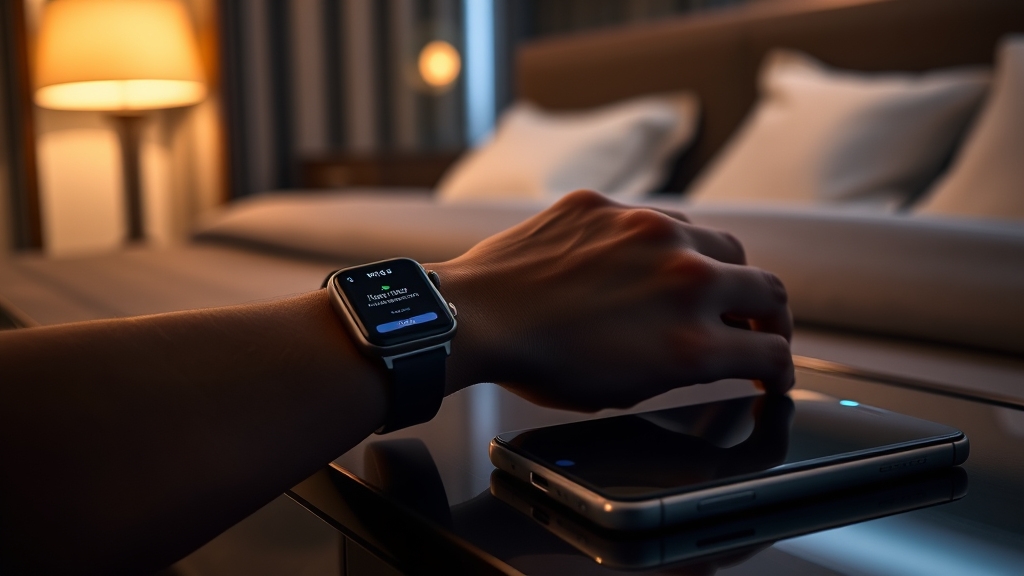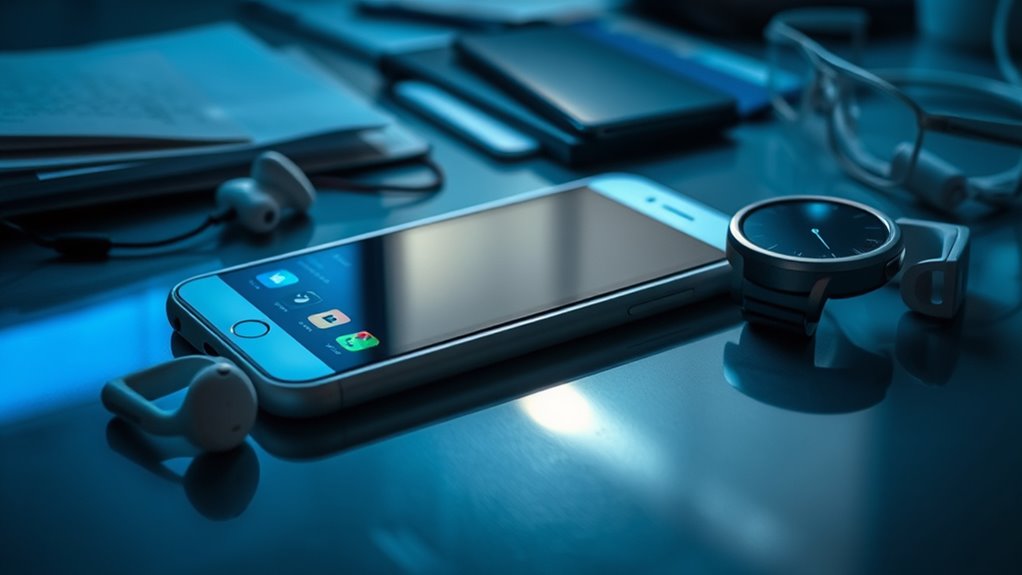Modern smart devices like smartphones and tablets make it easy for students to cheat discreetly during exams, using encrypted messages or disguised browser tabs. At the same time, schools use advanced monitoring tools such as facial recognition and keystroke tracking to catch dishonesty. This creates a tricky balance between preventing cheating and respecting privacy rights. If you continue exploring, you’ll discover how technology both exposes and enables hidden lies in exam environments.
Key Takeaways
- Smart devices facilitate discreet cheating through encrypted messaging, hidden browser tabs, and covert communication methods.
- Surveillance technologies like facial recognition and keystroke monitoring aim to detect cheating but raise privacy concerns.
- Advances in exam security include monitoring apps and AI tools that identify suspicious behaviors during tests.
- Ethical dilemmas arise from invasive surveillance that risks infringing on student privacy and personal freedoms.
- Balancing technology use involves implementing fair detection methods while respecting individual rights and promoting academic integrity.

Smart devices have transformed the way students approach exams, but they also open new avenues for cheating. As you rely more on smartphones, smartwatches, and tablets, you might not realize the significant privacy concerns that come with these tools. Schools and exam administrators are increasingly aware of how these devices can be exploited, raising questions about how to balance privacy rights with the need for fair testing. When students use smart devices to cheat, they often hide their activities through encrypted messaging apps or disguised browser tabs, making it challenging for invigilators to detect misconduct. But this also creates ethical dilemmas for educators and institutions: How intrusive can monitoring be without infringing on personal privacy? Should students be subjected to invasive searches or constant surveillance just to ensure a level playing field? These questions force you to contemplate the limits of privacy in the digital age and whether strict monitoring violates individual rights. Incorporating privacy-preserving techniques can help balance security and individual freedoms in these scenarios. The temptation to cheat with smart devices is fueled by their discreet capabilities. You can secretly access information, communicate with peers, or even manipulate exam content without physically sneaking notes or cheat sheets. This ease of access makes cheating more sophisticated and harder to catch, but it also amplifies the ethical dilemmas faced by educators. Should they implement invasive tracking methods, like facial recognition or keystroke monitoring, which might feel like invasion of privacy? Or should they trust students to uphold academic integrity? The dilemma is complex because, on one hand, cheating undermines the fairness of exams and devalues honest effort. On the other hand, overly intrusive surveillance can foster mistrust and infringe on personal freedoms. These ethical considerations influence how schools craft policies around exam security and the use of technology. Additionally, the reliance on smart devices has been linked to the development of advanced projectors, which can be used for both legitimate presentations and deceptive practices during tests. You might also wonder how the widespread use of smart devices impacts your own privacy rights. As schools adopt new monitoring tools to prevent cheating, students can feel constantly watched, raising concerns about who has access to their data and how it’s stored. The line between safeguarding exam integrity and respecting personal privacy becomes blurry. Students may hesitate to use their devices freely, fearing that innocent activities could be misinterpreted as cheating. This tension highlights the need for clear guidelines and transparent policies that respect individual privacy while maintaining fairness. Furthermore, the increasing integration of digital surveillance technologies in educational settings brings new challenges related to data security and ethical use. For example, biometric data collected through facial recognition or fingerprint scans adds another layer of privacy concern. A deeper understanding of how essential oils can be used to support mental clarity and reduce anxiety during exams might help students manage stress better, potentially reducing the temptation to cheat. Ultimately, the reliance on smart devices during exams forces everyone involved to face difficult ethical dilemmas, balancing the benefits of technological innovation against the fundamental rights to privacy and personal autonomy.
Frequently Asked Questions
Can Smart Devices Detect Emotional Infidelity?
You wonder if smart devices can detect emotional infidelity. While these devices excel at emotional detection by analyzing communication patterns, they mainly identify signs like secretive messaging or unusual activity. However, they can’t conclusively determine infidelity indicators related to emotional betrayal. You should remember that technology provides clues, but understanding emotional infidelity requires context, conversation, and trust—smart devices alone can’t fully reveal the depths of someone’s emotions.
Are There Legal Consequences for Using Tech to Cheat?
Ever wonder if using tech to cheat could land you in legal trouble? Yes, there are potential legal repercussions, especially if privacy concerns are involved. Laws vary by jurisdiction, but secretly recording or hacking into someone’s devices can lead to serious charges. You must consider the ethical implications and possible legal consequences before using technology to deceive. Is risking your reputation and freedom worth the temptation?
How Can Couples Safeguard Their Privacy Against Spying Devices?
You can safeguard your privacy by setting clear digital boundaries with your partner, discussing what’s acceptable and respecting each other’s privacy concerns. Regularly check for spying devices or unusual tech activity, and consider using security apps or professional help if needed. Keep your devices updated, use strong passwords, and stay aware of potential privacy risks. Building trust and open communication helps protect your privacy against spying devices and maintains healthy boundaries.
What Are the Signs Someone Is Secretly Cheating With Tech?
Spotting someone cheating with tech starts by noticing suspicious behavior, sneaky digital footprints, and unexplained device activity. You might find secret messages, unfamiliar apps, or hidden folders. Pay attention to inconsistent stories, avoiding screens, or sudden privacy changes. These signs point to hidden motives. You can stay alert by observing digital footprints, tracking suspicious behavior, and trusting your intuition to uncover potential deceit.
Do Smart Devices Create More Trust Issues in Relationships?
You might wonder if smart devices create more trust issues in relationships. They can, because they often raise digital trust and privacy concerns. When one partner feels monitored or suspects privacy breaches, it can lead to insecurity and resentment. While tech offers transparency, it can also blur boundaries. Open communication and setting mutual boundaries help maintain trust, ensuring technology supports connection rather than causing doubt or suspicion.
Conclusion
Just like a mirror reflects every detail, your smart device reveals everything, sometimes exposing secrets you’d rather hide. Imagine a student caught cheating when their smartwatch silently recorded their conversation—technology’s transparency can be both a shield and a sword. As smart devices become smarter, they’re not just tools but vigilant witnesses. So, whether you’re hiding a cheat or safeguarding your privacy, remember: in the world of tech, nothing stays hidden forever.









